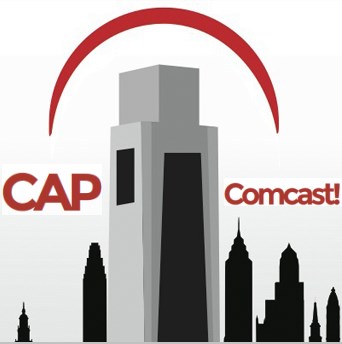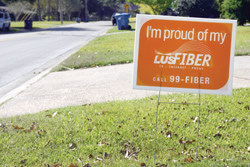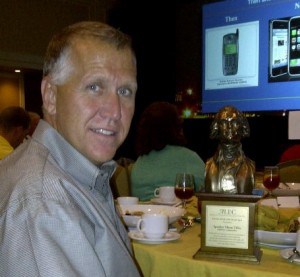 Comcast customers in Philadelphia are organizing to stop the cable company from winning a 15-year franchise renewal to continue providing service in the city unless the cable operator changes its ways after years of rate increases and poor customer service.
Comcast customers in Philadelphia are organizing to stop the cable company from winning a 15-year franchise renewal to continue providing service in the city unless the cable operator changes its ways after years of rate increases and poor customer service.
CAP Comcast! argues Comcast is not paying its fair share and is not a good corporate citizen in the city.
“Comcast has outsized power in a Philadelphia still suffering under economic crisis,” says the group. While the company charges some of the highest cable rates in the country, it has successfully earned $64 billion in revenue and an extremely low corporate tax bill.
“During the last franchise negotiation, Philadelphia elected officials and appointed leaders secured important resources for our city, including funds for public access television, and about $17 million a year for Philadelphia’s general fund,” said Bryan Mercer, co-executive director at Media Mobilizing Project. “But since that time, Philadelphia has shuttered over 20 schools and slashed services that our communities need. Comcast pays less than 4% in corporate tax revenue, in a state where the average is almost 10%. And they’re getting $40 million in subsidies for their new planned building. If Comcast wants a chance to profit from our communities, Philadelphia should ensure Comcast pays their fair share, or invite other communications companies to serve our city.”
Among the group’s key arguments:
- The company earned over $64 billion in revenues in 2013, while they lobbied to stop hundreds of thousands of Philadelphians from getting access to paid sick days;
- Comcast joined Governor Corbett and the Chamber of Commerce on a push to shutter and privatize Philly’s public schools;
- The ratio of CEO pay to average employee pay at Comcast is 370:1;
- And they pay little in a city and state that needs much — a nationwide corporate-income tax rate of only 3.4% in a state where our average rate is 9.99%.
“Comcast accesses our streets – our public rights of way – to sell cable and other services in Philadelphia,” said Hannah Sassaman, policy director at Media Mobilizing Project. “At the same time, they are earning huge profits here and nationally, and planning to merge with Time-Warner Cable. Comcast has lobbied to stop City Council from passing bills that would expand paid sick days to hundreds of thousands of workers who don’t have them, and their executives have raised hundreds of thousands of dollars for Governor Corbett, who has cut over a billion dollars from Pennsylvania education.
CAP Comcast! is asking for a five-year rate freeze for Comcast services while increasing broadband speeds and access to all Philadelphians. It also seeks fair treatment for Public, Educational, and Government access channels, expanded affordable Internet access without pre-conditions, involvement in solving local community problems, support of worker rights, and an end to passing along the cost of the franchise fee to customers.
The group has a petition on its website.
[flv]http://www.phillipdampier.com/video/Comcast Tell Comcast to Pay Its Fair Share 5-2014.mp4[/flv]
CAP Comcast! produced this video introducing its campaign to prevent another 15 year franchise for Comcast in Philadelphia unless the company changes its ways. (2:51)


 Subscribe
Subscribe



 Despite the fact broadcasters could face steep charges to guarantee their online streamed content reaches viewers in good condition, the National Association of Broadcasters has decided to bow out of the Net Neutrality debate.
Despite the fact broadcasters could face steep charges to guarantee their online streamed content reaches viewers in good condition, the National Association of Broadcasters has decided to bow out of the Net Neutrality debate. The trade group is also worried about offending their Republican allies in Congress, which have supported the television industry’s drive towards deregulation. The GOP almost uniformly opposes Net Neutrality.
The trade group is also worried about offending their Republican allies in Congress, which have supported the television industry’s drive towards deregulation. The GOP almost uniformly opposes Net Neutrality.